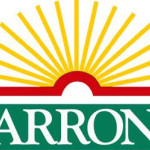- Industry: Printing & publishing
- Number of terms: 62403
- Number of blossaries: 0
- Company Profile:
Founded in 1941, Barron's Educational Series is a leading publisher of test preparation manuals and school directories. Among the most widely recognized of Barron's many titles in these areas are its SAT and ACT test prep books, its Regents Exams books, and its Profiles of American Colleges. In ...
To reduce a large piece of food to small particles or thin shreds by rubbing it against a coarse, serrated surface, usually on a kitchen utensil called a grater. A food processor fitted with the metal blade can also be used to reduce food to small bits or, fitted with the shredding disc, to long, thin strips. The food to be grated should be firm, which in the case of cheese can usually be accomplished by refrigeration. Grating food makes it easier to incorporate with other foods.
Industry:Culinary arts
To reduce food to small particles. Coffee beans can be ground in a coffee grinder, while meats such as beef must be run through a meat grinder. A food processor fitted with a metal blade can also grind some foods. Food can be ground to various degrees — fine, medium and coarse.
Industry:Culinary arts
To remove the gray-black vein from the back of a shrimp. This can be done with the tip of a sharp knife or a special tool called a deveiner. On small and medium shrimp, this technique need be done only for cosmetic purposes. However, because the intestinal vein of large shrimp contains grit, it should always be removed.
Industry:Culinary arts
To remove the natural moisture from food by slowly drying it. Considered the original form of food preservation, dehydration prevents moisture spoilage such as mold or fermentation. Food can be dehydrated manually by placing thin slices on racks and allowing them to dry assisted only by sun or air. It can also be done with an electric dehydrator, which resembles a large three-sided toaster oven with anywhere from 5 to 10 wire-grid racks. The food placed on these racks dries with the aid of fan-circulated air. Dried foods are convenient to store and transport because of their greatly reduced volume and weight.
Industry:Culinary arts
To scatter small bits (dots) of an ingredient (usually butter) over another food or mixture. Distributing bits of butter over the fruit in an apple pie, for example, allows the butter to melt evenly over the pie as it bakes.
Industry:Culinary arts
To separate meat at the joint, such as cutting the chicken leg from the thigh.
Industry:Culinary arts
To slowly pour a liquid mixture in a very fine stream over food (such as a sweet glaze over cake or bread, or melted butter over food before baking).
Industry:Culinary arts
To spoon or brush food as it cooks with melted butter or other fat, meat drippings or liquid such as stock. A bulb baster can also be used to drizzle the liquid over the food. In addition to adding flavor and color, basting keeps meats and other foods from drying out. Fatty roasts, when cooked fat side up, do not need basting.
Industry:Culinary arts
